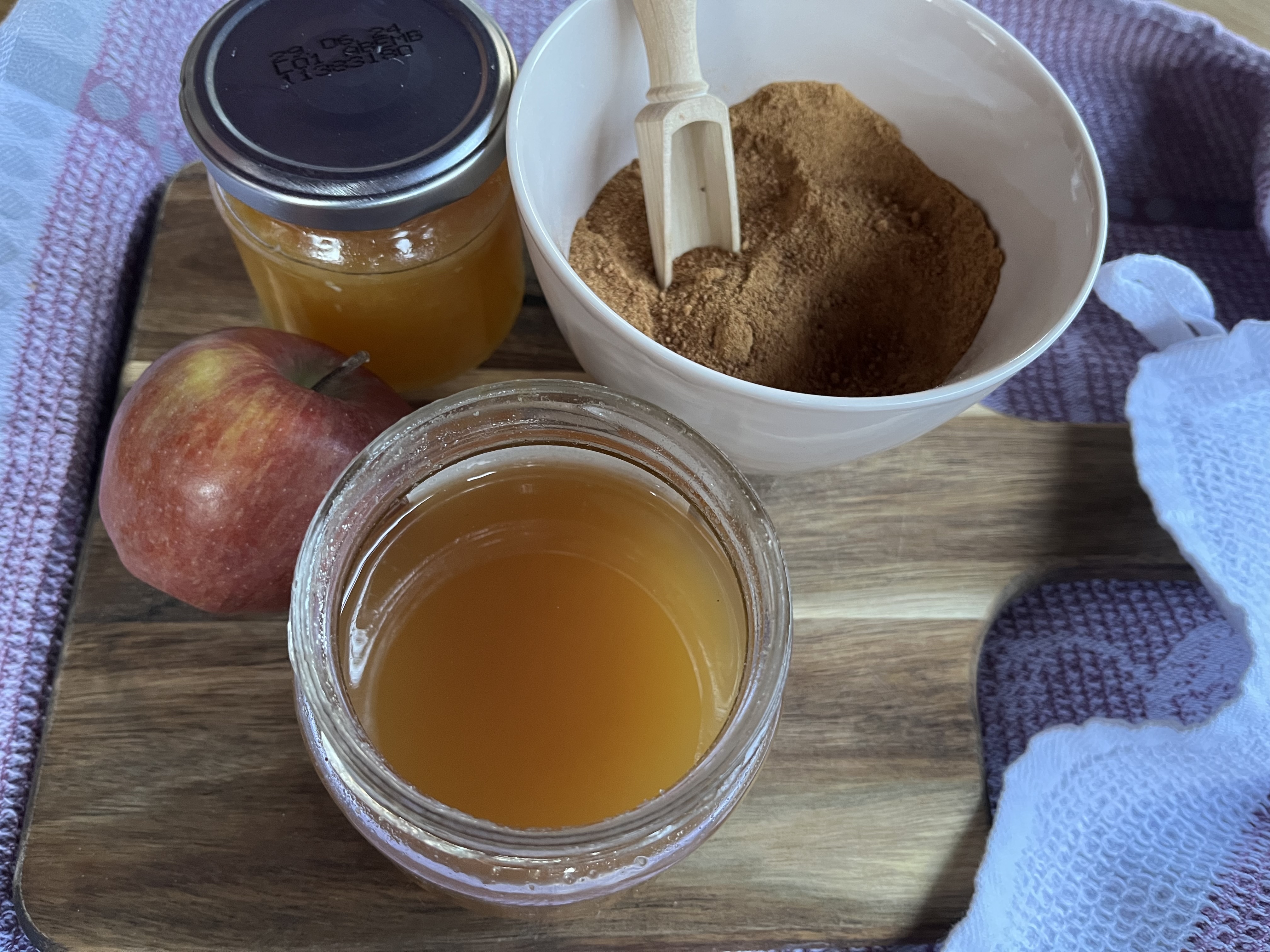 |
Nature’s Dessert Cookbook: Healthy, Delicious & Naturally Sweet Recipes Don’t want or can’t tolerate sugar alcohols and artificial sweeteners? This cookbook is for you! Every dessert is naturally sweetened with whole ingredients rich in fiber and protein, slowing sugar absorption and making them diabetic-friendly. It gathers your favorite recipes from the website—plus brand-new ones—all in one convenient place. Indulge in truly natural treats without compromise! |
 |
Diabetic Baked Goods: Everyday Bakes for Every Meal Diabetic cookbook designed to make healthy baking simple, accessible, and enjoyable. This collection of low-carb, high-fiber, and protein-rich recipes provides a reliable solution for those looking to enjoy diabetic bread and baked goods without blood sugar spikes. Every recipe includes a video tutorial, making it even easier to follow along and bake with confidence! |
 |
What Makes This Cookbook Different?
|
Honey and Diabetes: Using Honey in Diabetic-Friendly Desserts
Honey and diabetes: Can this natural sweetener be part of a healthy eating plan for those managing blood sugar?
Honey has been prized for centuries for its sweet flavor and purported health benefits. For diabetics, or those with diabetic children, the question arises: can honey be incorporated into a healthy diet?
While honey has a lower glycemic index (GI) than refined sugar, it's still a carbohydrate source and can affect blood glucose levels. Therefore, moderation is crucial. Is honey considered sugar? Yes, it is, but unlike refined sugar, honey offers a range of nutrients, making it a superior choice when used judiciously.
While many types of honey exist, raw honey, unprocessed and minimally heated, often retains a higher concentration of beneficial enzymes, antioxidants, and other bioactive compounds, potentially offering greater health benefits than processed honeys.
Honey's Nutritional Composition and Health Benefits
Honey is primarily composed of carbohydrates1 including natural sugars like fructose and glucose. However, it also contains trace amounts of vitamins, minerals, and antioxidants, setting it apart from refined sugars. These additional components contribute to honey's reputation as a more nutritious sweetener.
Honey's antioxidant properties help protect against oxidative stress and free radical damage linked to chronic diseases. Its antibacterial and anti-inflammatory properties are also well-documented. Furthermore, honey's prebiotic properties support a healthy gut microbiome, essential for immune function and overall well-being.
Scientific Evidence on Honey and Diabetes Management
Research suggests potential benefits of honey2 for those managing diabetes, including:
- Weight Management: Studies indicate honey may help with weight regain in diabetic individuals.
- Blood Glucose Regulation: Honey extract has shown a positive impact on blood glucose levels in animal models.
- Antioxidant Activity: Honey significantly increases antioxidant enzyme activity in diabetic mice, helping combat oxidative stress.
- Improved Lipid Levels: Studies suggest honey may improve lipid profiles, such as lowering LDL ("bad") cholesterol and triglycerides while increasing HDL ("good") cholesterol.
- Histopathological Improvements: Studies using animal models indicate honey may improve pancreatic islet cell health.
(Please note: These findings are primarily from animal studies; further research is needed to confirm their applicability to humans.)
Incorporating Honey into Diabetic-Friendly Desserts
Individual responses to honey, as with any food, can vary significantly. Therefore, seeking personalized guidance from a healthcare provider or registered dietitian is crucial for safely incorporating honey into a diabetes management plan. Closely monitoring blood sugar levels after consuming honey is also absolutely essential.
In our household, honey finds its way into a variety of desserts and baked goods. I use it to sweeten biscuits, cookies, and various creams. From experience, I've learned that honey's significant advantage lies in its natural sweetness, enabling its use in moderate amounts. Just a few tablespoons can enhance the flavor and provide sufficient sweetness, sometimes eliminating the need for additional sweeteners altogether. This approach has worked well for my son; desserts containing moderate amounts of honey, combined with carefully chosen ingredients, have not resulted in significant blood sugar spikes.
For us, incorporating honey offers a delicious way to include this natural sweetener in a diabetic-friendly diet. Its distinctive flavor profile adds depth and richness to our recipes. However, mindful usage remains key. When creating these desserts, I carefully incorporate honey alongside lower-GI sweeteners (such as stevia) and high-fiber, high-protein ingredients to moderate its impact on blood sugar levels.
This balanced approach helps maintain the deliciousness of desserts while minimizing the glycemic load and addressing health concerns. Our primary goal is to support my family's health without compromising on taste. A well-considered approach to sweeteners, focusing on overall nutritional balance, is paramount.

The Role of Honey in a Healthy Diet
Honey offers numerous potential health benefits and a natural sweetness that can be enjoyed as part of a balanced diet. Used thoughtfully and in moderation, as part of a carefully planned meal plan that considers other ingredients and portion control, honey can be a valuable addition to diabetic-friendly meals and desserts.
In our family, we’ve found a way to incorporate honey into our diet while effectively managing my son’s diabetes. This is our experience; individual needs and responses will vary. Experiment cautiously, prioritize moderation, and closely monitor blood sugar levels to find the optimal approach for your situation. Consulting with a healthcare provider or nutritionist can provide personalized advice on incorporating honey into your diabetes management plan.
In conclusion, honey is a fantastic natural sweetener with numerous health benefits, possible for diabetics also.3 By using it in moderation and coupling it with other ingredients wisely, you can prepare delicious, diabetic-friendly desserts. Honey and diabetes in my household find harmony.
This is our experience, and I encourage you to find a balance that works specifically for you if you or someone in your household has diabetes. Often, the best approach is to cautiously experiment, practice moderation, and closely monitor blood sugar levels.
Embrace the warmth and richness that honey brings to kitchen. With a smart approach, we can continue creating delightful desserts that promote well-being for us, our diabetic child and family. Enjoy honey's benefits while keeping health at the forefront of your culinary adventures.






